With Tetris releasing on Apple TV+ last Friday and Air landing in cinemas this week, it seems safe to announce the arrival of a new trend in popular cinema: the product biopic, a genre of film that takes the cinematic language traditionally reserved for important historical figures or true events and applies them to the origin of a consumer product. Call it a “commodopic” or a “brandopic.”
Of course, Hollywood has always loved movies ostensibly based on a true story. Awards bodies adore films that draw from real-life icons and important incidents. It’s fairly easy to rhyme off Best Picture winners that fall into that category. From the 21st century alone, that list includes Green Book, Spotlight, 12 Years a Slave, Argo, The King’s Speech, and A Beautiful Mind, and that is setting aside winners more loosely tethered to real events like Million Dollar Baby and Gladiator.
As with any other genre, it’s possible to identify broad trends among this group of films. In the 2000s and 2010s, for example, the genre tended towards more intimate character studies centered around specific events rather than sweeping epics that tried to condense a whole life into two or three hours: the interview in Frost/Nixon, the funeral at the heart of Jackie, the march in Selma, the Christmas retreat in Spencer, the meeting in Elvis & Nixon.
Sometimes these trends build slowly to something resembling a tidal wave. Over the past decade, there’ve been a number of films from high-profile directors essentially documenting their own lives: Alfonso Cuarón’s Roma, Paolo Sorrentino’s The Hand of God, Kenneth Branagh’s Belfast, and so on. That trend seemed to peak last year, with Steven Spielberg’s The Fabelmans, James Gray’s Armageddon Time, Sam Mendes’ Empire of Light, and even Alejandro G. Iñárritu’s Bardo.
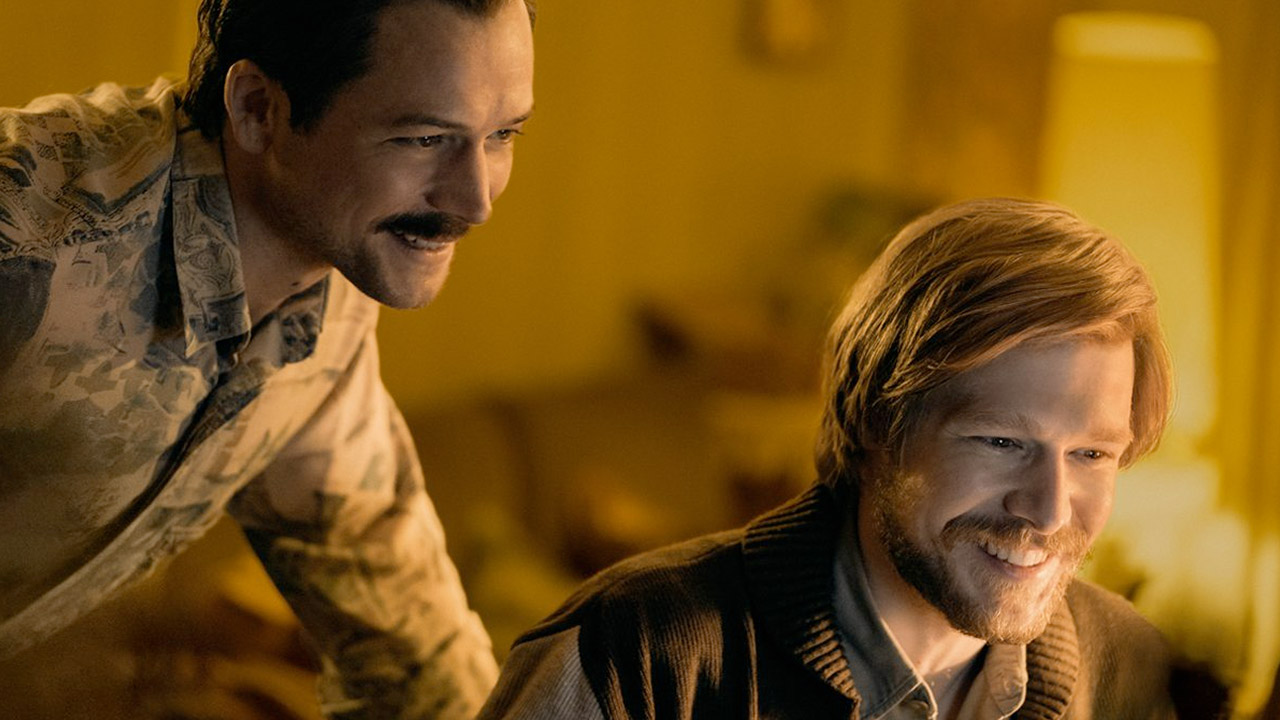
Almost in contrast to last year’s trend of auteurs telling their life stories, this year’s big trend is to be movies documenting pivotal moments in the lives of key brands. Tetris and Air are the most high-profile examples of this, arriving in quick succession with strong reviews from buzzy festival screenings. That alone would be notable. However, these two films don’t exist in isolation. There is clearly something in the atmosphere — something in the Air, perhaps.
March saw the release of Pinball: The Man Who Saved the Game, following Roger Sharpe’s (Mike Faist) efforts to overturn the ban on pinball in New York City. Eva Longoria’s Flamin’ Hot premiered at SXSW along with Tetris and Air, about how janitor Richard Montañez (Jesse Garcia) invented the Flamin’ Hot Cheeto brand. Later this month, Blackberry will explore origins of the eponymous handheld device. Jerry Seinfeld’s Unfrosted: The Pop-Tart Story is still awaiting release.
Traditionally, these sorts of films adopted a somewhat critical approach to their subjects. Mark Zuckerberg has talked about how David Fincher’s The Social Network was “hurtful,” even as the movie continues to define him. Critics noted the “bitter irony” and “gristly joke” in the title of The Founder, the story of how Ray Kroc (Michael Keaton) wrested control of the McDonald’s brand from the McDonald’s brothers (Nick Offerman and John Carroll Lynch).
Even though Danny Boyle’s Steve Jobs was built around three separate product launches featuring the title character (Michael Fassbender), it was still more interested in the person than the intellectual property. The technology was a reflection of the character to the point that Steve Wozniak (Seth Rogen) complains that “computers aren’t supposed to have human flaws” and Joanna Hoffman (Kate Winslet) opines that “what you make isn’t supposed to be the best part of you.”
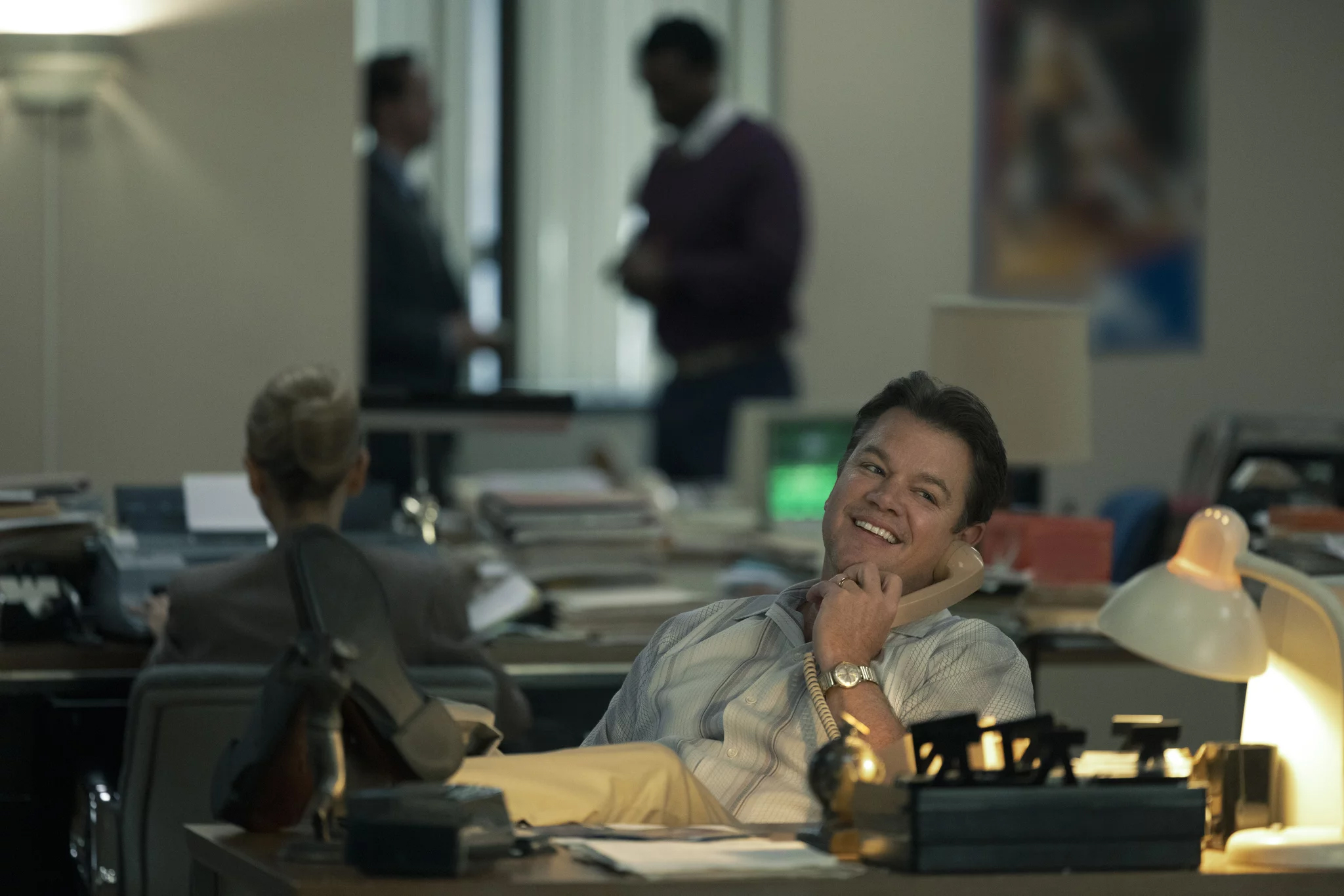
There is a sense that movies like The Social Network and Steve Jobs were the stories of how individuals built their flaws into their products, and those products in many ways shaped the modern world. There is still a kernel of human interest nestled at the heart of these stories, which stands in stark contrast to the corporate hagiography that defines this new wave of brand-centric cinema. Tetris and Air are framed as triumphant narratives, built around the intellectual property itself.
The basic plot of Tetris resembles nothing so much as Steven Spielberg’s Bridge of Spies, the true story of how James B. Donovan (Tom Hanks) navigated Soviet bureaucracy to secure the return of two American prisoners (Austin Stowell and Will Rogers) at the height of the Cold War. Tetris is about a similarly high-stakes mission to Moscow, except that Henk Rogers (Taron Egerton) is trying to secure international rights to a video game.
Rogers didn’t invent Tetris. He just wants to license it. The game’s inventor, Alexey Pajitnov (Nikita Yefremov), is presented as a somewhat passive figure, while characters talk about the product with near-religious awe. The movie’s opening sequence finds Rogers explaining the value of the game to his banker, Eddie (Rick Yune), in terms close to rapture. “It was the most beautiful thing I’ve ever seen,” he explains. “I played Tetris for five minutes, yeah? I still see falling blocks in my dreams.”
With due respect to Egerton, Tetris doesn’t have movie stars. It has recognizable brands. At one point, Rogers is escorted deep into the Nintendo laboratories by Howard Lincoln (Ben Miles), who has something he wants to show the entrepreneur. “What’s it called?” Rogers asks. There’s a slight pause to allow the music to build. “It’s called the Game Boy,” Lincoln states. It’s a thrilling moment, well constructed by director Jon S. Baird, but it is also unsettling.

Tetris is a story about the triumph of capitalism, to the point that the movie stops just short of suggesting that the game about disappearing blocks brought down the Berlin Wall. When the sinister Valentin Trifonov (Igor Grabuzov), a member of the Communist Party’s Central Committee, introduces himself to Pajitnov, he explains, “I just wanted to meet the man responsible for almost destroying the Soviet Union.” He’s kidding, but not really.
“It’s just a video game,” Rogers complains as the entire Soviet apparatus conspires against him. His translator, Sasha (Sofya Lebedeva), responds, “To you, yes. But to the men in power, it is a slippery slope from selling one game to selling all of Russia to the highest bidder.” Rogers works hard to ensure that Pajitnov gets fairly paid for his work. When Pajitnov explains that he has received no financial compensation, Rogers insists, “That’s criminal.” Pajitnov replies, “No, it is communism.”
When Pajitnov takes Rogers out nightclubbing, Rogers is shocked that everybody knows the lyrics to “The Final Countdown.” Pajitnov explains, “Good ideas have no borders.” He’s not talking about philosophy or ideology, but about intellectual property. The closing scenes of Tetris find Pajitnov arriving in San Francisco to start a new life. The Pet Shop Boys’ “Opportunities (Let’s Make Lots of Money)” roars on the soundtrack, the band’s “great ironic statement” played entirely straight.
Air is an overt example of this trend. Michael Jordan is perhaps the greatest American sportsman who ever lived. The Last Dance, a documentary looking at his life and career, was one of the most compulsive watches of the early pandemic. There is a lot to unpack and explore about his life, on and off the court. So it’s strange that a film ostensibly about Jordan is actually about the design and marketing of the Nike shoes that would become an iconic part of his brand.
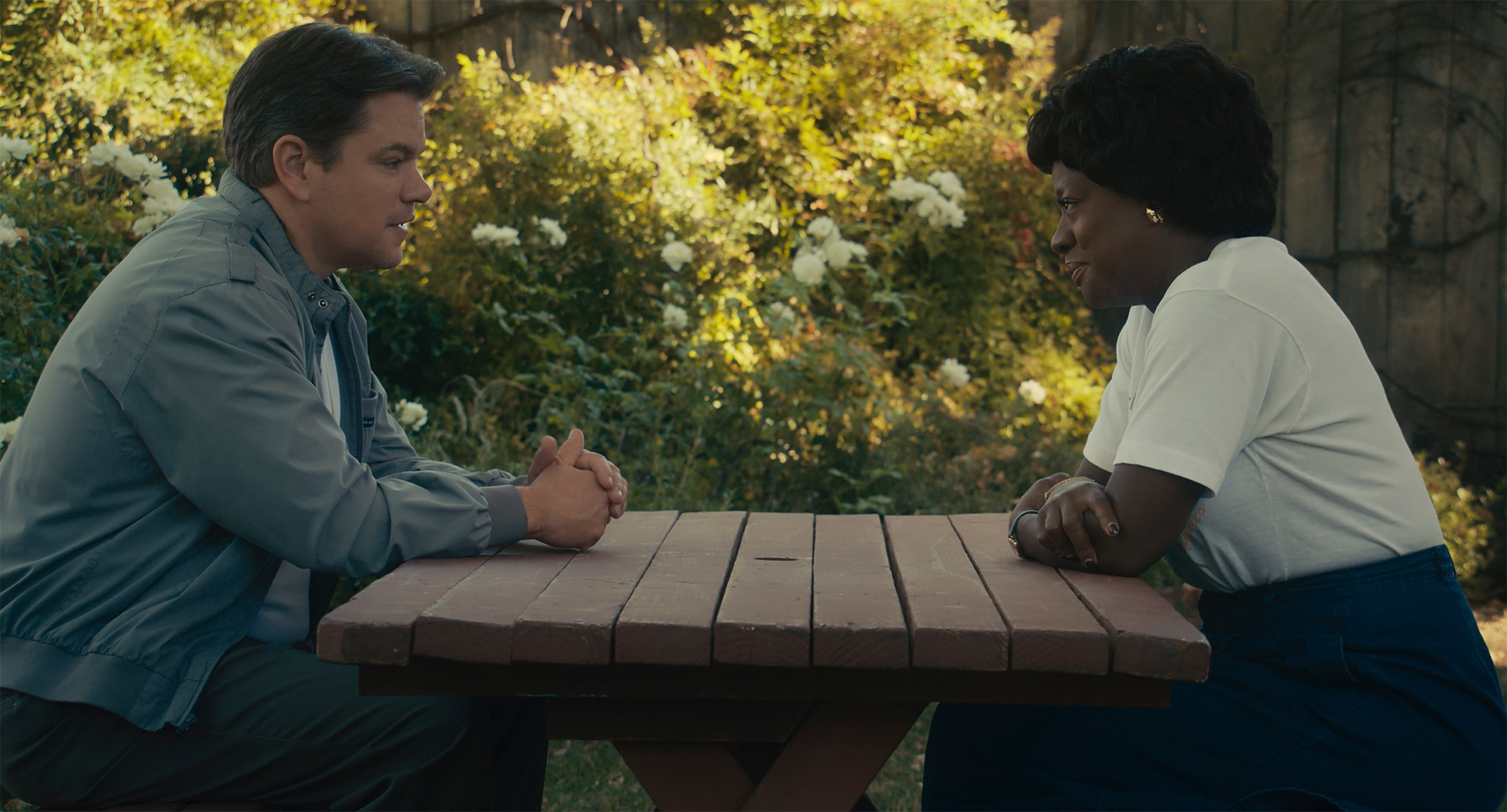
Of course, Jordan’s narrative has always been interwoven with American capitalism, to the point that his father’s death was mythologized as part of the brand-management exercise that was Space Jam. Jordan was involved in Air, insisting on the casting of Viola Davis as his mother, Deloris. However, Air isn’t really a story about Jordan. It is instead a story about how Nike built “a shoe line around just him” and how the company manufactured “the greatest basketball shoe that’s ever been made.”
This is the sort of brazen mythmaking that one might expect to see in old-fashioned biopics like Gandhi or Lawrence of Arabia, stories of the “great men” of history who shaped social progress and forged the paths of nations. Except these are stories about video games and sneakers, recognizable brands tied to larger corporations. The human characters in these stories are largely incidental, just the actors through which capitalism flows.
After all, Tetris isn’t really interested in the reality of Henk Rogers’ story. “It’s a Hollywood script; it’s a movie,” explains the real-life Rogers. “It’s not about history, so a lot of [what’s in the movie] never happened.” This is also apparent with Flamin’ Hot, a rags-to-riches tale based on the promotional story that Flamin’ Hot Cheetos were largely pushed by a member of the company’s service staff. The story is disputed, to say the least, but production on the movie pressed ahead anyway.
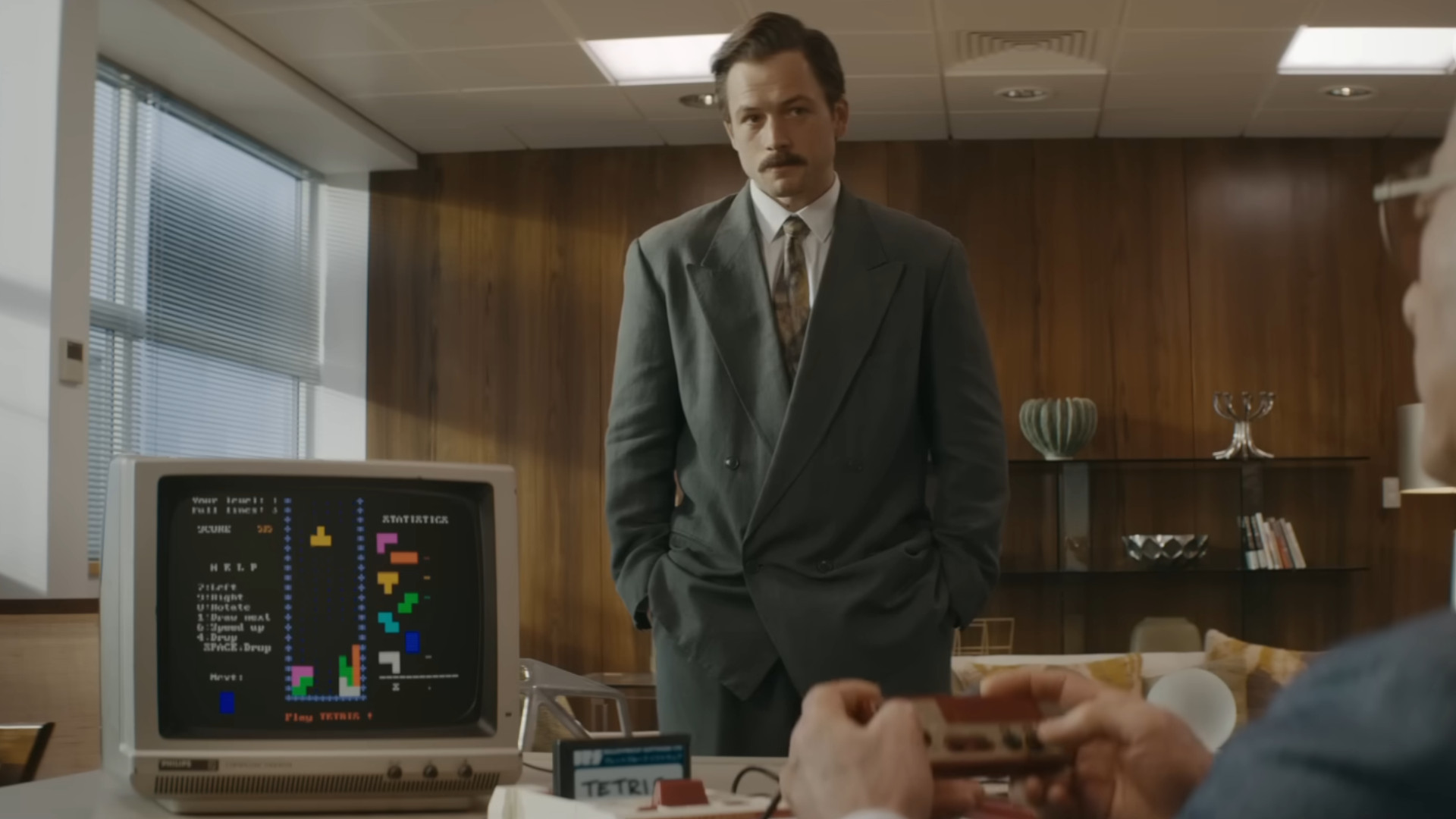
Then again, perhaps this isn’t unusual. Last year, Lightyear de-fictionalized the in-universe movie that had inspired Buzz Lightyear (Tim Allen) in Toy Story, essentially a biopic of a toy from an earlier film. A couple of years ago, KFC teamed up with Lifetime to produce A Recipe for Seduction, a saucy biopic for their fictional mascot Harland Sanders (Mario Lopez). Tetris and Air are just more earnest and more polished takes on the same idea, fashioning corporate narratives into modern mythology.
“When the legend becomes fact, print the legend,” observes Maxwell Scott (Carleton Young) in John Ford’s The Man Who Shot Liberty Valance. It says a lot that modern pop culture seems to be printing legends about fast food and Pop-Tarts. It is perhaps the logical endpoint of a pop culture that has come to treat intellectual property as the star. Still, it makes for an interesting contrast with the modern wave of film and television — from The Menu to Succession — that’s wary of the myths of capitalism.
Then again, last year’s wave of auteur biopics (auteur-biographies) might be instructive here. Those films felt deliberately indulgent and decadent, the work of artists aware that the industry was shifting and even collapsing around them. Watching those films, it seemed like the filmmakers were worried that this might be the last chance to tell those stories. After all, studies over the past decade have consistently shown that young voters are losing faith in old-fashioned capitalism.
These films feel like a desperate attempt to stay on-brand.

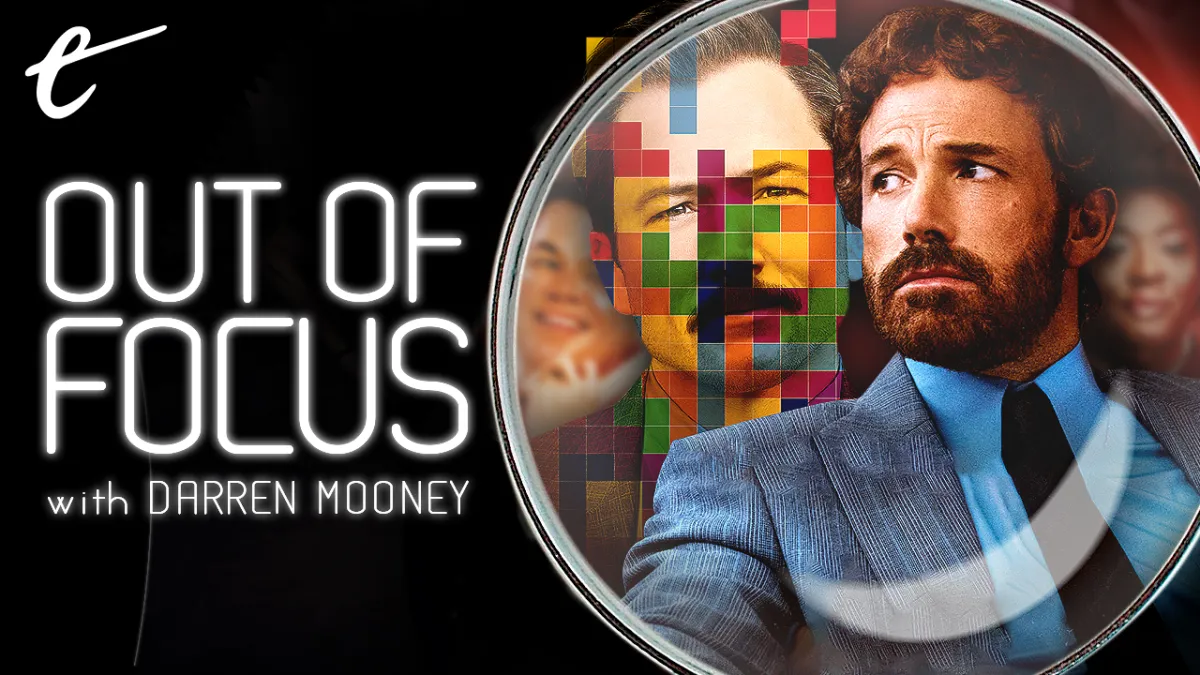
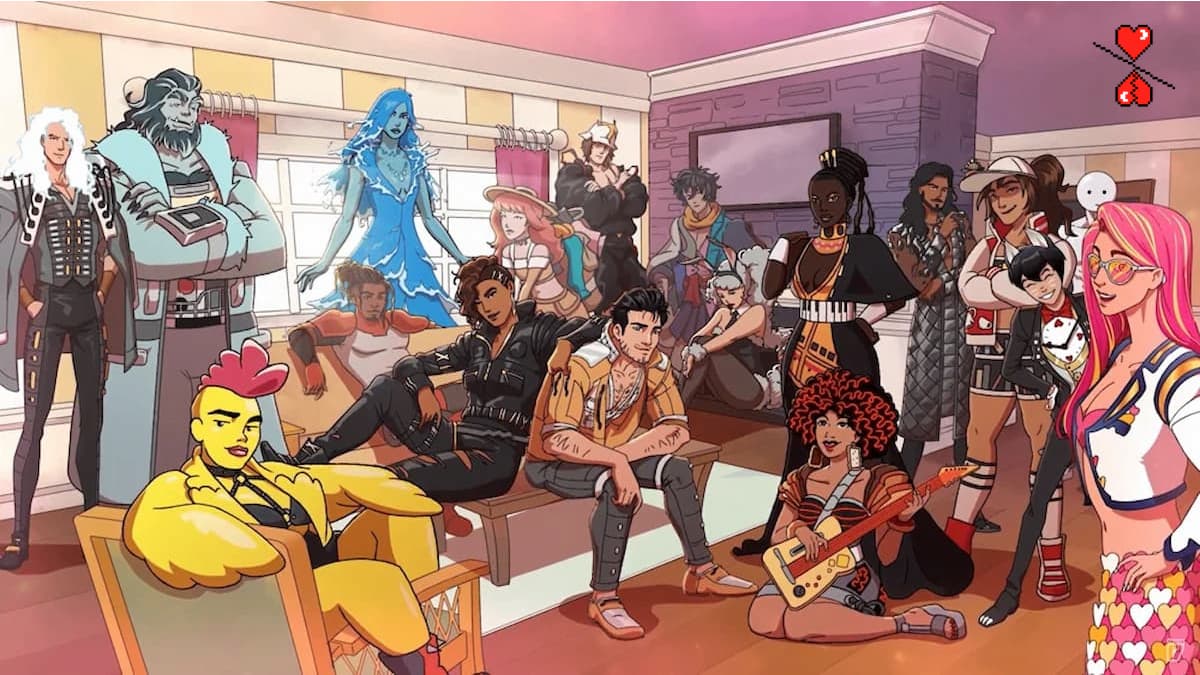



Published: Apr 5, 2023 4:00 PM UTC